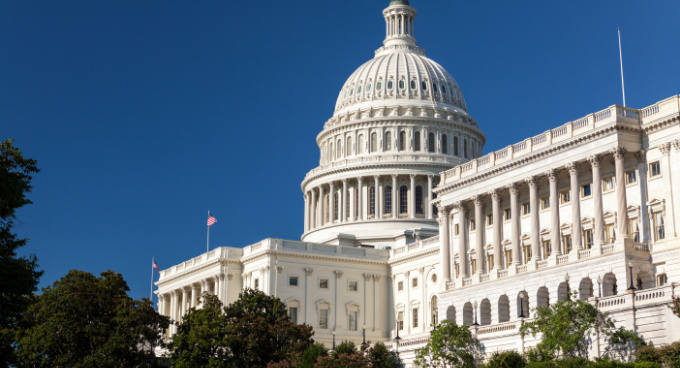The One Big Beautiful Bill (OBBB) Federal Tax Reform – Top 10 Key Takeaways for Manufacturers
 Posted by Kristin Re’ on July 23, 2025
Posted by Kristin Re’ on July 23, 2025
Signed into law on July 4, 2025, the Reconciliation Bill—officially titled the One Big Beautiful Bill (OBBB)—introduces sweeping changes to the U.S. tax code. Designed to provide lasting tax relief and stimulate economic growth, the legislation includes permanent tax cuts, expanded deductions, and increased benefit thresholds for both individuals and businesses.
Key Highlights
(1) Domestic R&D Expensing Restored
The bill permanently reinstates immediate expensing of domestic research & development expenses, which can result in significant tax savings for manufacturing companies. Certain small businesses may have the opportunity to amend tax returns for tax years 2022-2024 to expense R&D that was previously capitalized, while others have the option to deduct unamortized costs in 2025/2026. Expenses for research & development activities outside of the U.S. must continue to be capitalized and amortized over fifteen years.
(2) Bonus Depreciation & Section 179
The bill reinstates 100% first-year bonus depreciation for property placed in service after January 19, 2025, allowing taxpayers to recognize an immediate expense for qualified fixed asset additions. The OBBB increases the maximum amount of Section 179 eligible property that a taxpayer can expense to $2.5 million. This amount is reduced by the amount of qualified fixed asset additions that exceed $4 million.
(3) Depreciation for Qualified Production Property
The OBBB creates an elective 100% bonus depreciation deduction for qualified production property, which includes nonresidential real property used as an integral part of qualified manufacturing. It does not include nonresidential real property used for functions unrelated to manufacturing, production, or refining of qualified products (e.g. sales office, etc.).
(4) Permanent QBI Deduction
The 20% Qualified Business Income (QBI) deduction is now permanent for partnerships, sole proprietors, S-Corporation owners, and independent contractors, offering long-term tax savings for self-employed individuals.
(5) Expanded SALT Deduction Cap
From 2025 - 2029, the cap on SALT deductions increases from $10,000 to $40,000, increasing to 101% of the previous year's cap, providing significant relief for taxpayers in high-tax states. The deduction begins to phase out at modified adjusted gross income over $500,000 for 2025, adjusted annually. The phaseout cannot reduce the deduction below $10,000. In addition, the state pass-through entity tax (PTET) workarounds remain unchanged.
(6) Lower Individual Tax Rates & Permanent Standard Deductions
The individual income tax rates introduced under the TCJA are now permanent, preventing the scheduled rate increases that were set to take effect after 2025. In addition, the increased standard deduction amounts were permanently extended.
(7) Estate & Gift Tax Exemption
The bill permanently increases the estate and gift tax exemption amount to $15 million per person ($30 million for married filing joint), which will be indexed annually for inflation after 2026. This is a powerful tax planning opportunity for manufacturers looking at estate and succession planning.
(8) Business Interest Limitation
The OBBBA permanently reinstates an “earnings before interest, taxes, depreciation, and amortization” limitation for determining the amount of business interest that may be deducted. There are also several unfavorable changes related to certain income that must be excluded from the calculation as well as certain interest included in the limitation calculation.
(9) Alternative Minimum Tax
The bill permanently extends the increased Alternative Minimum Tax exemption amounts that were set to sunset after 2025 and increases the exemption phaseout amount from 25% to 50% of the amount by which alternative minimum taxable income exceeds the threshold amount. This could result in more taxpayers being subject to the alternative minimum tax.
(10) Qualified Small Business Stock (QSBS) Exclusion
The OBBB modifies the gain exclusion on the sale of qualified small business stock. For qualified small business stock acquired after July 4, 2025, the gain exclusion is 50% if the stock is held for at least 3 years, 75% if the stock is held for at least 4 years, and 100% if the stock is held for at least 5 years. The per-issuer gain limitation also increased from $10 million to $15 million for qualified stock acquired after July 4, 2025, and the OBBBA increases the qualified small business gross asset threshold to $75 million from $50 million. Both provisions will be adjusted for inflation after 2026. The QSBS exclusion can be a powerful tax planning tool for C Corp manufacturers.
To help you navigate these complex changes with confidence, our technical articles below provide a clear and comprehensive overview of how the OBBB affects individual taxpayers, estate planning strategies, and the impact for business owners. Each article highlights important considerations and outlines actionable steps to ensure you remain fully informed and prepared for this new financial landscape.
Lumsden McCormick is available to provide ongoing support and guidance on how to manage the implications and how these tax laws will impact your business operations and personal wealth. Our dedicated tax professionals, including CPA Kristin Re', stand ready to deliver personalized guidance and comprehensive solutions tailored to your unique needs.
Download a one-page summary of Effective OBBB Dates for Businesses here.


